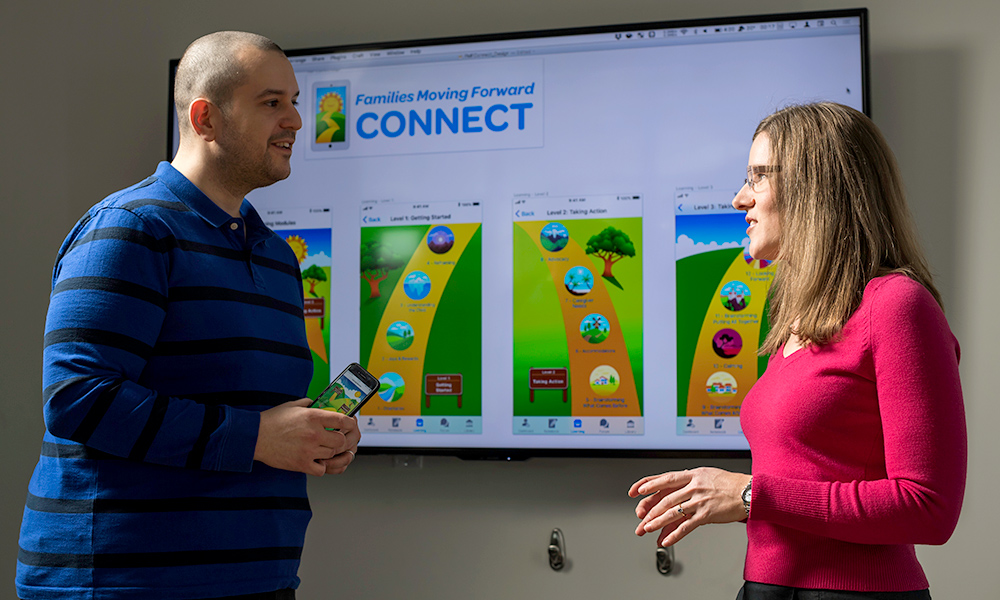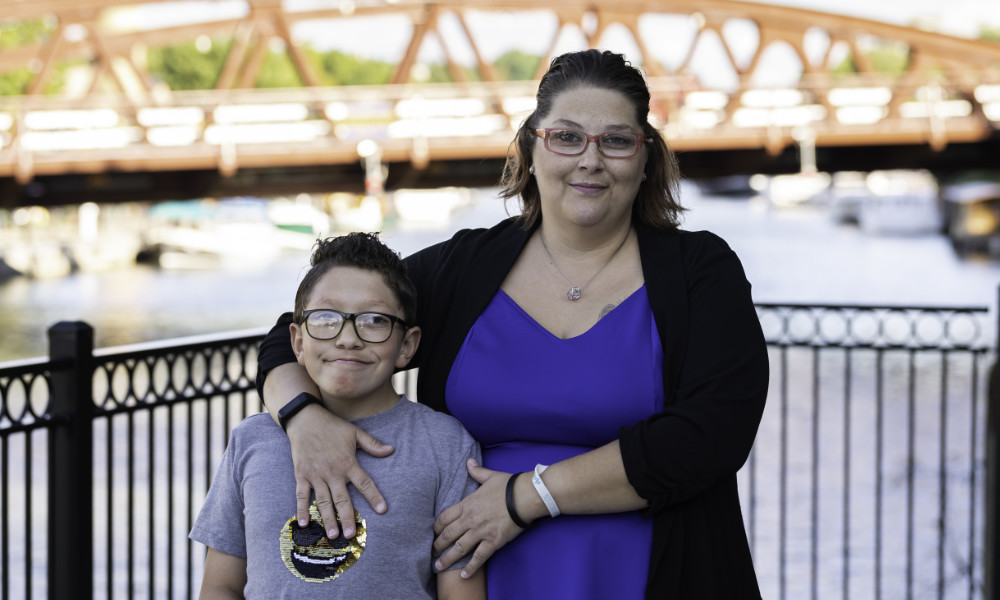Prenatal alcohol exposure affects about 2 to 5 percent of the US population. Children and adults with fetal alcohol spectrum disorders (FASD) struggle with lifelong learning and behavioral problems. Without appropriate support services, they are at high risk for secondary conditions, such as mental health problems, trouble with the law, school disruption, and substance abuse.
Early diagnosis is key, yet often FASD is not correctly identified. That’s why a team of researchers has created a training manual—titled Assessment of Fetal Alcohol Spectrum Disorders (Pan American Health Organization, 2020)—in both English and Spanish, to help health care providers recognize and diagnose the disability.
Download the free training manual
Assessment of Fetal Alcohol Spectrum Disorders: A Training Workbook from the Pan American Health Organization’s website.
The University of Rochester’s Christie Petrenko, a research associate and assistant professor at Mt. Hope Family Center and the Medical Center’s division of Developmental and Behavioral Pediatrics, is part of that team—together with Omar Rahman, director of the Munroe-Meyer Institute Department of Genetics at the University of Nebraska Medical Center, Diego Gomez, a neuroscience major at Creighton University, and Maristela Monteiro, senior advisor on alcohol and substance abuse for the Pan American Health Organization/World Health Organization (PAHO/WHO).
Rahman and Petrenko have consulted and provided training workshops on FASD throughout the world as consultants for PAHO/WHO since 2011. They worked with Monteiro in Chile in 2017 and in the Dominican Republic in 2018 and 2019; their experiences in those countries led to the creation of the workbook.
“Each time we’ve done these trainings, we’ve continued to improve our training materials and get feedback from sites,” Petrenko says. “The current iteration of training material really solidified on our last trip to the Dominican Republic. It’s been a great opportunity to work together and find the most effective ways to engage people in different countries who may have different resources and skill sets available.”
“As we saw its usefulness, we kept adding to it,” Rahman says. “It became a much more comprehensive work.”
The 55-page handbook, now available in English and soon to be available in Spanish, features sections on prenatal exposure, dysmorphology, neuropsychology, the diagnostic process, and case-based learning modules.
The handbook is particularly valuable because FASD often goes undiagnosed. The team told a story of a health professional who attended a training session in the Dominican Republic and realized her nephew might have FASD.
“She then brought in her nephew and his mother, and the child had a full case of fetal alcohol syndrome,” Monteiro says.
The boy had previously been through three different, privately evaluations, and had an MRI done. “No one knew what it was. It was textbook, really, the child had all the features,” Monteiro says.
That incident was part of the inspiration for the handbook, which also drew from work that Rahman and Petrenko had done in Eastern Europe and Africa with the WHO. Monteiro championed the project with PAHO and by placing the handbook on the PAHO website ensures worldwide access.
“People in Central and South America trust PAHO to provide them with good resources and information,” Rahman noted.
The team credited Gomez, who currently is applying to medical school, with writing most of the handbook in both English and Spanish. Members of the University of Nebraska Medical Center public relations team helped with the design.
“The fact that this is freely available to everyone, and on such an important website, is really going to help raise awareness about the condition, in addition to being a good resource for anyone who interacts with patients who have FASD,” Gomez says. While extensive FASD medical literature is available, there’s still a dearth of direct training materials. “Having someone condense that and explain it in language accessible to people will raise awareness.”
The team is now looking at creating additional resources aimed at parents and teachers.
John Keenan of the Munroe-Meyer Institute at the University of Nebraska Medical Center contributed to this story.
Read more
 First mobile app for caregivers of children with FASD reaches trial stage
First mobile app for caregivers of children with FASD reaches trial stageThe first promising results are in for an app designed to help caregivers of children with fetal alcohol spectrum disorders.

Self-care linked to greater confidence in parents of children with FASD
A Rochester study is the first to describe caregiver strategies for self-care and the obstacles and barriers parents face in raising children with fetal alcohol spectrum disorders.

Thriving while living with fetal alcohol spectrum disorders (FASD)
The University of Rochester is home to one of only two specialty FASD diagnostic clinics in New York state. Here, Rochester psychologists are making the case for a new approach to treating the condition.





